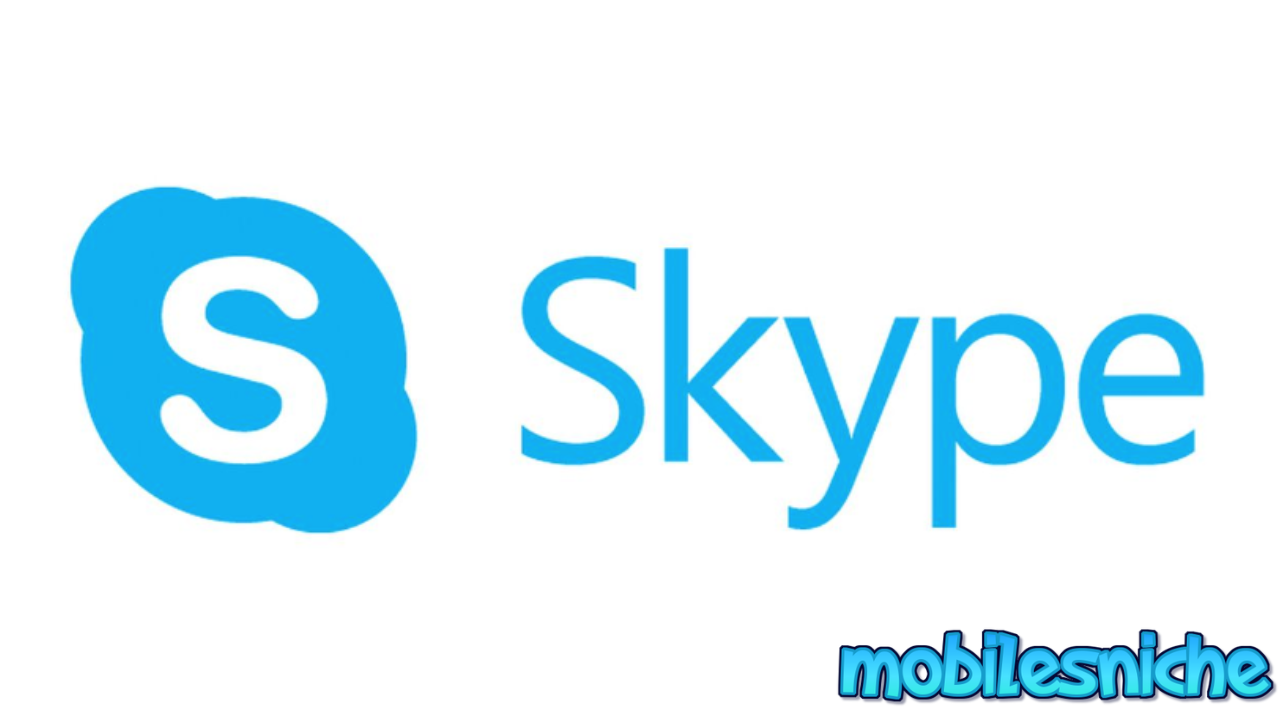Skype, the iconic communication platform, has left an indelible mark on the digital landscape. As one of the pioneering video conferencing apps, Skype revolutionized the way we connect with others through its user-friendly interface and versatile features.
With its inception dating back to 2003, Skype quickly became a game-changer in the realm of online communication, offering not only video and audio calling but also instant messaging and file sharing capabilities. Its seamless operation and fast-paced innovation have made it a staple tool for individuals and businesses alike.
Recent reviews and articles shed light on Skype’s enduring relevance and its evolution in a fast-paced digital world. Whether discussing its convenience, reliability, or innovative features, the consensus remains clear – Skype continues to be a preferred choice for those seeking efficient and effective communication solutions.
Exploring the rise and fall of Skype provides valuable insights into its journey, highlighting its pivotal role in shaping modern communication trends. As we delve into the intricacies of this iconic platform, we uncover a rich tapestry of experiences and possibilities that have made Skype a resilient and enduring presence in the digital landscape.
The Evolution of Skype
Skype, a pioneer in online communication, was founded by Estonian developers Zahti Heinla, Priit Kasesalu, and Jaan Tallinn, along with Danish developer Janus Friis and Sweden’s Niklas Zennstrom. It emerged as a peer-to-peer messaging service that transformed the way people connect globally.
Introduction to Skype
Skype, created in 2003, offers a range of features that set it apart from traditional communication tools. Its core functionality includes video calls, voice calls, instant messaging, file sharing, and conference calls, all accessible through various devices. Unlike other platforms, Skype emphasizes simplicity and user-friendliness.
Key Milestones
- Founding: Skype’s journey began when Niklas Zennstrom and Janus Friis introduced the software client, revolutionizing Voice over Internet Protocol (VoIP) technology.
- Acquisition by eBay: In 2005, eBay acquired Skype, recognizing its potential in the digital realm. This acquisition marked a significant turning point in Skype’s growth.
- Integration with Windows: Microsoft acquired Skype in 2011, integrating it into the Windows operating system. This move expanded Skype’s reach and user base exponentially.
- Technological Advancements: Over the years, Skype has evolved with technological advances, enhancing its video and voice call quality, introducing screen sharing, and adapting to changing user needs.
- User Milestones: Skype has reached numerous user milestones, boasting millions of active users worldwide and becoming a household name for online communication.
Through these key milestones, Skype has cemented its position as a leading communication platform, shaping the way individuals and businesses interact in the digital age.
Skype’s Impact on Communication
Skype, a communication pioneer, has significantly impacted the way we connect with others globally. Let’s delve into how Skype has revolutionized communication, bridging gaps and reshaping interactions in business and personal spheres.
Global Connectivity
Skype has become a game-changer in global connectivity, breaking down geographical barriers and enabling seamless interactions across countries and cultures. Through voice and video calls, Skype has created a fast-paced environment where individuals can communicate in real-time regardless of their physical location. This has unraveled new possibilities for collaboration, learning, and understanding among people worldwide.
Business and Personal Use
Skype caters to both personal and professional communication needs, making it a versatile tool in various settings. For businesses, Skype offers a proactive approach to conducting virtual meetings, interviews, and client interactions. Its pivotal role in enabling remote work has become increasingly relevant in today’s evolving digital landscape. On a personal level, Skype allows individuals to maintain connections with loved ones, attend virtual events, and engage in face-to-face conversations regardless of distance. Its leverage in enhancing communication efficiency and building relationships has made it an indispensable tool in the modern world.
Skype’s influence on communication goes beyond just being a video calling service. It has transformed the way we interact online, fostering a sense of closeness and collaboration in an increasingly interconnected world. As Skype continues to evolve and adapt to changing communication trends, its resilience in bridging communication gaps remains a cornerstone of its impact on the global community.

Current Perspectives and Reviews
Recent reviews and opinions shed light on the current status of Skype, providing valuable insights for users considering this communication platform.
User Satisfaction and Feedback
- User Experiences: Users praise Skype for its reliability in calls, video meetings, and instant messaging. The interface’s simplicity is a major plus, making it easy for both beginners and seasoned users to navigate. However, some users express frustration with occasional connectivity issues affecting call quality.
- Pros and Cons Highlighted: Among the highlighted pros are the user-friendly interface, cross-platform compatibility, and the ability to make international calls at affordable rates. On the downside, users mention the lack of advanced customization options and occasional glitches during group calls.
- Overall Satisfaction Levels: Despite minor drawbacks, overall satisfaction with Skype remains high. Users appreciate its ease of use, clear audio and video quality, and the convenience of screen sharing during meetings.
Technical Analysis
- Performance: Skype’s performance stands out with fast call connections and minimal lag during video calls. The platform’s stable servers contribute to a reliable user experience. However, some users report occasional delays in message delivery, impacting real-time communication.
- Security Features: Skype prioritizes user privacy and data security with end-to-end encryption for calls and messages. This commitment to protecting user information enhances trust in the platform. Ongoing updates continue to strengthen Skype’s security measures against evolving cyber threats.
- User Interface: The user interface of Skype remains intuitive and user-friendly, catering to a diverse user base. Recent updates have enhanced the visual appeal and streamlined the navigation, improving overall user experience.
- Compatibility: Skype’s compatibility with various devices and operating systems ensures seamless communication across different platforms. Users can access Skype on smartphones, tablets, laptops, and desktops, enabling flexible communication options for individuals and businesses alike.
By analyzing user feedback and technical aspects, it’s evident that Skype continues to be a preferred choice for communication due to its user-centric design, reliable performance, and commitment to security.
The Future of Skype
Skype, once a pioneering force in online communication, continues to navigate a landscape of evolving technologies and market dynamics. Let’s explore the potential advancements and challenges that lie ahead for this iconic platform.
Technological Innovations
In the realm of technological advancements, Skype is poised to embrace cutting-edge developments to enhance user experiences. One key area of focus is the integration of Artificial Intelligence (AI) to streamline communication processes and provide personalized interactions. Imagine a future where AI algorithms anticipate your needs during calls, offer real-time language translations, or enhance security measures to safeguard your privacy.
Moreover, Skype is honing its competitive edge by unraveling enhanced security measures to fortify its platform against cyber threats. By leveraging state-of-the-art encryption technologies and biometric authentication, Skype aims to create a seamless and safe environment for users to connect across the globe.
To stay ahead in the fast-paced digital arena, Skype is exploring innovative features that will revolutionize the way we communicate. From immersive AR and VR experiences to seamless cross-platform integration, the future holds exciting possibilities for Skype users worldwide.
Competition and Market Trends
In a world brimming with communication tools, Skype faces a dynamic landscape of competitors vying for market share. Emerging platforms like Zoom and Microsoft Teams have reshaped the online meeting landscape, posing a formidable challenge to Skype’s dominance.
As market trends shift towards remote work and virtual collaboration, Skype must adapt to meet the evolving needs of users. By fostering strategic partnerships, embracing user feedback, and embracing a customer-centric approach, Skype can carve out a resilient position in the competitive market.
Navigating the ever-changing realm of communication technology requires agility and innovation. By staying proactive in monitoring market trends, anticipating user demands, and delivering exceptional user experiences, Skype can cement its status as a game-changer in the digital communication sphere.
As Skype continues its quest for excellence, one thing remains clear – the future of this iconic platform is brimming with potential. By embracing innovation, enhancing security measures, and staying attuned to market trends, Skype is well-positioned to thrive in the evolving landscape of communication technology.
Conclusion
Skype, a revolutionary communication platform, has stood the test of time with its fast, free, and user-friendly interface. Despite some limitations in customization and support for large meetings, Skype remains a reliable tool for connecting people worldwide.
As we reflect on Skype’s significance in the past, present, and future, we are reminded of its role in pioneering VoIP services and shaping the way we communicate online. While new technologies emerge, Skype’s legacy as a forerunner in video and voice calls remains unparalleled.
In a world where connectivity is key, Skype continues to bridge distances and bring people together, sparking meaningful conversations and collaborations. As we look ahead, let’s cherish the simplicity and effectiveness of Skype while embracing the endless possibilities that lie ahead in the realm of digital communication.
For more Slot Reviews like this, Visit our Website Here.


